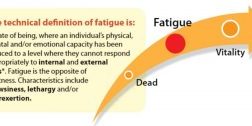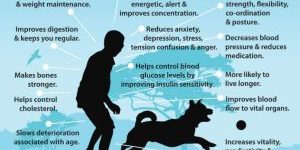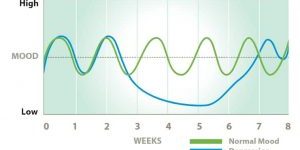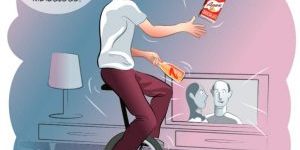The impacts on circadian rhythm and melatonin production in visually impaired people
What is fatigue?
Fatigue is not a condition, but rather a symptom of many different situations, illnesses or conditions and can be defined quite simply as a feeling of weariness, tiredness, or lack……
10 nutrition tips to beat fatigue
Eat breakfast based on breads, cereals low fat dairy and fruit. Pack a lunchbox with snack including at least 2 pieces of fruit. Portion dinner plate correctly with half the……
How much sleep do you need?
The amount of sleep that people require varies between individuals depending on many factors. Age is a major determinant of the quantity of sleep. The table below provides a general……
Sleep & physical activity
Do I exercise or just have a sleep? It is not uncommon for people experiencing fatigue to put this down to lack of sleep, when in actual fact there are……
Depression and the impact on fatigue
While we all experience low mood from time to time, it is important to understand that this is not depression. Depression is more than just a low mood. Depression is……
Energy requirements & fatigue
Eating too much food will provide more energy than we need for metabolic and activity needs, leaving the extra energy stores as body fat (weight). The greater your body weight,……
Food quality and quantity
The quality and quantity of food you choose can make a huge difference to body weight. The difference between the two diets on the right is 5700kJ. Someone that eats……
Smoking and sleep
Nicotine can hamper a person’s ability to fall asleep or get good quality sleep. Studies have shown that the average smoker gets 30 minutes less sleep compared to non-smokers. Trouble……
Exercise and physical activity. How to finding the balance
Active living is a way of life in which physical activity and exercise are valued and integrated into daily life in a fun and enjoyable way. In other words, seeing……
What are the signs and symptoms of fatigue?
Some of the key signs to look out for are listed below. Drowsiness is an impaired awareness associated with a desire to sleep and signs include:errors in familiar tasksrepeated yawningdifficulty……










